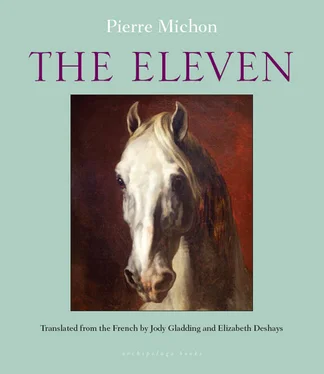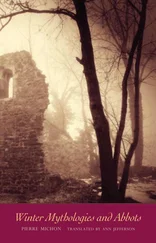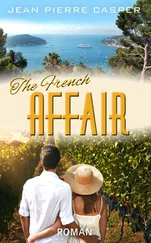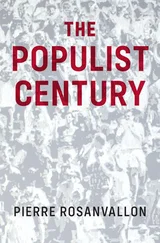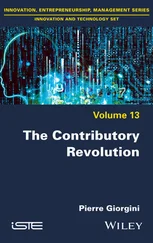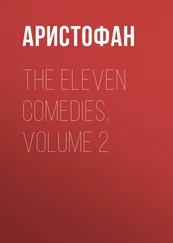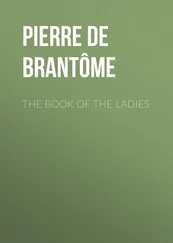Yes, all that, Sir — whether it is a matter of authors, that is, men of the Enlightenment, powerful machines for increasing man’s happiness while also increasing their own glory, but authors in the Limousin style, powerful broken-down machines, widowers of literary glory, or whatever — all that belongs to the little antechamber; all that appears in the notes: there is no sign of it in the painting. Because it is a good painting. No goose feathers or muses, no pensive brows, no excessive interiority. But I myself like to think that Corentin put his father into it, eleven times, as he put into it, eleven times, variously and miraculously, all that was his life, his love and his malediction, his pardon. And of course he also put into it, eleven times, the unreal revenge of his father, the real defeat of his father, standing.
It is strange, Sir: he put the figure of his father in the form of the eleven murderers of the king, the Father of the nation — the eleven parricides , as the king’s murderers were then called.
See how the reflections on the glass change when you move a little. How clearly I suddenly see Couthon’s black coat on his acid gold chair. No, not gold, sulfur, gold is for Saint-Just. And if I take two steps, what richness in the Spanish fringes on the three-colored sash of the representative Saint-André, at the other end. Two steps more and everything is dark. What are they looking at from behind the glass there, Sir? What revenge, what defeat?
Combleux, Sir.
You do not know Combleux? In Combleux everything is light. It is childhood. It is well before The Eleven , well before the great painting of darkness in which the light was buried bit by bit, well before the gold and the sulfur, the blue, the white, the red, the three colors of the Republic one and indivisible dance in the dark, rise calmly in the depths of night. In Combleux it is daylight. There is the river, the sky, the summer. Ventôse is still far off. It is to Combleux we must return to really see the child; and to see the two women in great light skirts who are bending passionately toward him.
We know what François-Élie said in his Voltairian fashion, much later when all that was left of them was ashes: They killed me with love, but I paid them back well. Because the stitches were closely woven, Sir: the stitches of their skirts. And it took shears to cut them from within. To cut, to slice, to sever, to make suffer and suffer.
But that was for later — when for example he returned to Combleux for the last time, in the year 1784, when La Pompe de Frimont asked him in a letter if he had remembered to bring “the great off-white cloak and the three-cornered hat of the same color” (and beneath them, what La Pompe does not mention, the Voltairian caricature, the grim features of Simon the cobbler), “because the winter is all ice”; when La Pompe de Frimont also begged him to finish, before spring if he could, the interminable Sibylle de Cumes for which he, La Pompe, was languishing; yes, in the winter of 1784, when he returned here for the last time, as far as we know, and painted for the above-named the great series of Sibylles that is generally considered, before The Eleven , to be his masterpiece. We know that that winter, painting and not painting, doubting as usual, endlessly procrastinating, he often walked along the frozen Loire. And — telling you about him as a little blond child under skirts — I cannot help but see, as in a reflection, superimposed, the old crocodile in the white cloak wandering slowly along the piers under the dirty March sky, muddying his white stockings, pulling down over his eyes that white hat whipped by the March rain. He lifts his head from time to time, once more he questions this sky, this earth: and if I cast my gaze in the direction of the objects he is regarding, I can see rain on the world; I see the icebound barges and among them, higher, feminine, round bellied, that enormous Nantes flatboat stranded since November 1783, on the gunwale of its stern facing Chécy, the exhausted flatboat that, before being reduced to transporting salt on the Loire, had made the slave trade triangle to the Americas twenty times, that in the alembic of its hold had multiplied gold with black flesh, well shaken and compressed, cooked, ebony, Indies coin as slaves were then called, the flesh of misfortune transmuted for some into pure gold, into tables for a hundred guests under the West Indies’ chestnut trees, into balls, into lisping Creole girls in their great basket skirts — I can see that prodigious vessel waterlogged, falling apart into rotten planks under two or three crows. I see the bare March willows and the flights of herons; I can also see the barefoot ones in their battered hats who haunted the locks then, the river’s dead, who waited for days for a barge owner to hire them for a cup of wine, a crust of bread, and who were called the men at the end of the bridge , those at the bottom of the ladder, those who are going to fall — and who for the moment are infuriated by the ice and the ice jams, miserable, staggering; I see them crying with hunger, collapsed on the great levees unchanging and erect, the corset of hard stones, the corset of desire that never varies under the variations of the water; all the picturesque and the pictorial, the universal freight that makes beautiful paintings, I can see it, like Tiepolo, like Fragonard or Robert, like Corentin, like a painter or a passerby. But I cannot see as clearly as Corentin sees them in memory, because I did not know them living, alive, the two blond specters with the great skirts whose thinning shadows Corentin regards in the rain that is falling on the world. And then perhaps the tears of the crocodile flow.
He cries for his lost empire: for the reign in Combleux of a child over two women, that is, over the world. Because two prostrate women on either side of you is the world. As for myself, knowing him a little from my long familiarity with The Eleven , I can hardly believe that he suffered as a child from the absence of his father, as has so often been said; no, the father’s departure, the loss of the father, was not a cause of suffering for him, but an extraordinary relief, an unhoped-for crown; because the father was the rival (and of course, you tell me, there was another older, more diffuse rivalry, more spectral although more visible: the one that, in the beautiful expanses of the enslaved waters under the corset of hard stones, stretched smoothly from Orléans to Montargis; the villainous mark of the one who excelled in the twists and turns of hydraulics, the old Huguenot king, the grand-father; but the grandfather had the great elegance of being a dead rival, of those who transform themselves alchemically into models). The father was the only notable rival, the living one, the one who speaks in your presence and is not of your opinion; and, with this rival overcome, transformed with the wave of a magic wand into a shadow one spoke of with disapproval and regret, he, François-Élie, had entirely at his disposal — well, almost — those two skirts for whom he was the single object.
That is exorbitant, Sir: whoever has not experienced it does not know the pleasure of living. He has not the slightest idea what a reign is, that is, the gift of having at his disposal and under his command not chimeras or specters, or what amounts to the same thing, the bodies of constrained slaves, as we all do, but living souls in living bodies — a gift, truly, obtained without the least violence, without effort or toil, by sole virtue of the Holy Spirit, or by the more mechanical virtue of one of those celestial decrees that were idolized at that time, the Universal Law of Attraction, the Fall of Earthly Bodies. Yes, all that, conforming to a decree especially arranged for his use by the Almighty or the Great Architect, all that, Suzanne, Juliette, their pattering hearts, their hands and their dresses, and all the objects enclosed within their hearts, their hands, their dresses, the entire world therefore — fell toward him, was his.
Читать дальше
